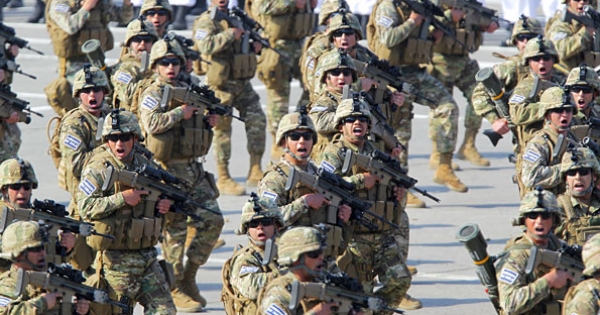
The threats of the 21st century are not only diffuse, they are hybrid; allow the border between the concept of security and the concept of National Defense to become very thin, and perhaps almost imperceptible if an international mega-crisis is unleashed. It is therefore essential that the Chilean Armed Forces be prepared to face and take on new forms of aggression from the point of view of doctrine and their means and resources.
Contrary to what the Government of Sebastián Piñera seems to think, the fight against drug trafficking, an eminently police issue, is not synonymous with modern hybrid warfare and is not necessarily an element, factor or instrument of this. And therefore it is not an eminently military role and should not be promoted by the Ministry of Defence.
Historical experience in this regard has proved disastrous in Latin America. National public opinion should bear in mind that the Armed Forces that have been sent to fight drug trafficking have ended up corrupted and their structures and hierarchies infiltrated by criminal organizations. Mexico, Colombia and Venezuela are examples of this.
It is one thing for the armed forces to support the police task at the borders, through their means of remote or semi-remote surveillance, and quite another, that the well-founded fear of drug trafficking is used propagandistically to hide the vacuum or absence of a geopolitical or geostrategic doctrine that the civilian driver is obliged to provide to the Armed Forces in the context of a country vision.
It is dangerous to install concepts that could potentially divert the Armed Forces into proper police tasks, distracting them from their readiness to deal with the real conflicts of the 21st century, conflicts that, according to most geopolitical analysts will have as main players the countries of the Asia-Pacific and Indo-Pacific regions.
And in addition to the potential danger that the Armed Forces will begin to be distracted, from their increasingly demanding professional functions, there is also the risk… no less, that the Armed Forces are caught up in a kind of budgetary trap, since it can be argued by some monetarist seal government, that the pseudo-police and border control functions that they are being granted will require a budget i nferior, that those who might be needed for a high-intensity war such as modern conventional wars or high-complexity conflicts such as so-called hybrid wars.
The content poured into this opinion column is the sole responsibility of its author, and does not necessarily reflect the editorial line or position of El Mostrador.
"El reclamo puede ser genuino, pero construido sobre una mentira", apuntó el presidente Javier Milei…
El gobernador de la provincia de Buenos Aires, Axel Kicillof, encabezó un acto en Ensenada…
El diputado nacional de La Libertad Avanza, José Luis Espert, expresó su confianza en la…
Tras la masiva reaparición de Cristina Fernández de Kirchner, el presidente Javier Milei apuntó contra…
El principal propósito de la nueva comisión es evaluar los recursos humanos en el Senado,…
En una medida que busca redefinir las condiciones de los seguros de automóviles en Argentina,…
Esta web usa cookies.